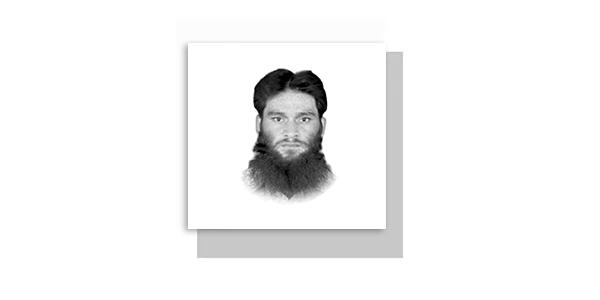IN numerous real-life scenarios, our general perception of something often holds more power than the actual reality itself. In many instances, perception has the remarkable ability to shape the very reality it corresponds to. At the outset of 2022, the general perception of Imran Khan and his political party was that of a failed politician. Consequently, the results of the initial phase of local elections in the Pakhtunkhwa province proved to be a nightmare for Pakistan Tehreek-e-Insaf. However, events in March and April led to a complete transformation of this general perception. Despite the fact that nothing has changed about Imran Khan and PTI, the party became most popular in Pakistan. PTI successfully demonstrated its substantial popularity in subsequent by-elections. This example underscores the potent influence of prevailing general perception on outcomes.
Similarly, our collective perception often automatically influences outcomes. Take, for instance, the scenario where someone spreads a rumour that sugar prices will double tomorrow, and this rumour gains popularity among the public. As a result, many individuals will rush to buy sugar today, leading to an immediate surge in demand and consequently an increase in prices, even before the anticipated date. This phenomenon is not exclusive to individual experiences; it extends to nations as well. Over the course of 15 years of terrorism in Pakistan, the total number of casualties did not match the annual toll of gun violence deaths in the United States. Yet, the general perception of unrest toward America is not as pronounced, causing people to perceive Pakistan as more dangerous than the United States.
Internationally, Pakistan’s general perception has evolved into that of a deeply troubled, unstable, highly corrupt, ignorant and backward society. Consequently, no one is ready to take Pakistan seriously, and it has to struggle so hard to gain the attention it deserves on the global stage. Regrettably, our media and politicians often play a significant role in perpetuating this negative impression. They sometimes prioritize their personal interests over the truth. For instance, a leader of a popular party with his followers staged a four-month-long dharna (protest) under the pretext of “35 punctures.” When the leader was asked by the court to provide evidence, he replied, “How can I give you evidence, I was hospitalized at that time.” This unsubstantiated claim created such a false impression that thousands of people rallied to Islamabad in his support and stayed there for a long time.
Similarly, accusations were made against an individual for embezzling a staggering 1,500 billion rupees. The accuser seemingly had no knowledge of the amount he was alleging. Technically, such a massive corruption sum would be impossible for one person in a province with a total budget of around 2,000 billion rupees. Nonetheless, based on propaganda, the impression of colossal corruption took root. Eventually, the accusers gained power, and the accused was imprisoned with a huge investigation against him. Despite three and a half years of investigation, absolutely no evidence of corruption on such a high scale was found, and the accused was acquitted during the PTI era. Nevertheless, the accusation and subsequent investigation and prosecution created the perception of corruption in trillions and the world received a false message of such huge corruption.
Likewise, politically-motivated allegations of corruption are often made in billions even when technically the corruption of a few millions is not possible, and evidence of a few thousands is not present. Consequently, the outside world is left with the impression of widespread corruption which is technically not possible. Moreover, minor incidents in local squares receive hours of media coverage, giving the external world the impression of severe unrest. For instance, you may recall the event of a man named Sikandar, who stood in the Blue Area with a gun in his hands and used his wife and children as human shields, and had some stupid demands. This event garnered extensive coverage, leading the world to believe that the capital city was in the grip of a kidnapper. Actually, it was an act of a mentally sick person which affected only a few hundred feet area, and the business in surrounding areas was running as usual.
Such incidents, when amplified and sensationalized, contribute to the distorted global image of Pakistan as a place of constant instability and insecurity. This distorted perception has far-reaching implications, discouraging foreign investments and trade partnerships that could greatly benefit the nation’s economy. These impressions of unrest and corruption have severely damaged Pakistan’s reputation abroad, causing people to hesitate to engage with the country. Pakistan is a nation like any other nation in many respects and is better than many other nations on a number of parameters. But unfortunately, its global image is so distorted that the world sees it as resembling a Dracula Empire. As a result of these perceptions, the outer world likes to have businesses with India, Bangladesh and other nations, and they avoid having business with Pakistan.
To address this issue, it’s crucial for media outlets and individuals to exercise responsibility in disseminating information. You are welcome to propagate news about any incident of corruption and unfair means, but only if you have solid evidence about its truthfulness, or at least when you are confident that this is possible to happen. Accusations of corruption and wrongdoing should only be made when there is concrete evidence to support them. False allegations not only tarnish reputations but also erode trust in institutions and leaders. If an institution has a budget of 100 million, the maximum possible corruption would be less than the budget and an allegation of corruption of 500 million is obviously false, but such news will get huge social media coverage and can win a good space in the mainstream media as well. Making baseless accusations or participating in propagating them, when there’s actually no basis for them, amounts to an act of anti-patriotism that hurts your country very badly.
—The writer is Director, Kashmir Institute of Economics, Azad Jammu and Kashmir University.
Email: ateeqmzd@gmail.com









